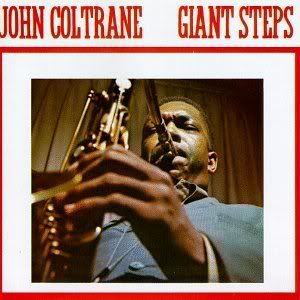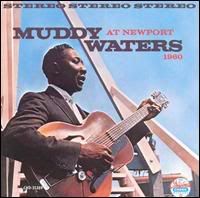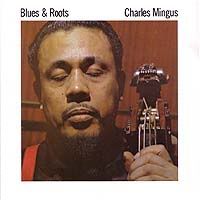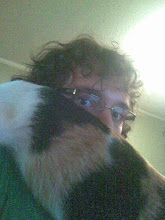
John Coltrane - Giant Steps
Year Rank: 1
Overall Rank: 334
The impression that a lot of people have about jazz from the late 50's and early 60's is that it's just a bunch of guys getting high and making their saxophones go “squeedy-dee-doo-squee” for five minutes. They then take a break and make a different set of “squeedy-dee-doo-squee” noises for another five minutes, and so on. Oh, and don't forget the one where the guy plays the high hat all day while the pianist just kinda goes at it.
This impression, while not wholly correct, is based on truth. Giant Steps by John Coltrane starts off with three songs that follow the “squeedy-dee-doo-squee” trajectory. I understand why people like this, but I really can't get into it. I like mostly like jazz, and without sounding too square (daddy-o), I prefer my jazz to be smooth. Not 94.7 KTWV The Wa-ee-ave smooth, but I guess just more... downbeat. Luckily for the second half of this album, Coltrane tones down the melodic spikes, making the the whole experience a lot more pleasant.
Yeah, it's acclaimed, but is it good?
Eh, yeah, after a while, I guess. Paul F. Tompkins defines a “jazz joke” as a note that is played in a place where it shouldn't be, to an allegedly humorous end. Everybody playing the instruments laughs, and then all the phonies in the audience chuckle along with them. The first half of this album feels like one big old jazz joke, which eventually settles into a pretty good and pleasant record. I just wish they'd gotten around to it sooner.
Worth listening to for: “Spiral” and “Naima”
Overall grade: B-. I'm willing to give this one the benefit of the doubt, because while I can't say it was life-changing in any way, I have listened to it three times in the past three days - twice volitionally. Could be worse.
---

Muddy Waters - Live at Newport 1960
Year Rank: 3
Overall Rank: 501
For most of my life I've lived with depression, though sadly I've never had the blues. You'd think I'd have at least gotten small outbreaks of the blues - I love cigarettes, whiskey, harmonicas, old cheap suits, warm beer, cold women - it all should add up to having the blues. The only problem I can see is that I'm not an old black dude with giant hands, which every great blues singer seems to be. Muddy Waters, being the Father of Chicago Blues, was no exception to this rule.
Waters' first live album, recorded at the 1960 Newport Jazz Festival, is exactly what you think of when you think of “the blues.” Muddy Waters' deep, resonant voice belting out songs about women leaving him over the crying harmonica and the thunderous rhythm section. It's truly fantastic. It used to be that if you released a live album, you'd just record one concert and just let that be your album, warts and all. I'm not sure when bands started cherry picking tracks from every stop on their tour and releasing what essentially becomes a live “best of” album. I'm much more interested in hearing a whole concert, or at least one contiguous chunk of a concert released as a record. It feels more natural. One of the highlights for this album is the encore of “Got My Mojo Workin',” a rolling call and response song that, once it ends, the crowd demands to hear it again.
Yeah, it's acclaimed, but is it good?
My God, yes. High energy and incredible musicianship make this album stand out as a shining star in a genre that can, at times, feel very derivative and repetitive. Even when the band plays the same song twice in a row, it feels less like repetition and more like an extended run of a successful play. The only problem I have with this album is that when Chess re-released it in 2001, they included bonus tracks from a different concert. The album is called Live in Newport, not Live in Newport and a Couple of Tracks in Chicago. Whatever.
Worth listening to for: “Got My Mojo Workin'” and “(I'm Your) Hoochie Coochie Man”
Overall grade: A+. This album is an especially impressive accomplishment considering that this is a soundboard recording from 50 years ago, and it sounds crystal clear.
---

Charles Mingus - Blues and Roots
Year Rank: 6
Overall Rank: 824
Blues and Roots suffers less from jazz jokes than its alleged better, Giant Steps. It is, however, not without its faults. One of the first (only) things I learned about musical theory is that theme and variation can be used to create pleasant solos for all your band members. The problem with this - and most - jazz recordings is that the band seems to veer a little too far away from the theme in their attempts to vary it, alienating the listener (me). Mingus' band is much better at reeling it in than the Coltrane crew, however, and the experience is a lot more satisfying.
This album has a good, swinging, almost spiritual feel. The first track, “Wednesday Night Prayer Meeting,” sounds like the musical sermon. One thing that Mingus does on this album that I appreciate is yell. He yells all the time. Sometimes they're musical cues, sometimes they're just yelling for the sake of yelling. A good, old-fashioned shout never hurt anybody. It rather helps here.
Yeah, it's acclaimed, but is it good?
I'll say yes, but it's not a home run or anything. Stand-up triple, I guess. Just as exciting as a home run, but not as good. Of the two jazz albums I've listened to this week, this is far and away the better one, so there's that.
Worth listening to for: “Moanin'” and “Tensions.”
Overall grade: B+. Whenever I listen to jazz and don't like it, I feel like I'm missing something. Maybe I'm missing something in the music, maybe I'm missing something inside of me. Either way, something's missing. The real problem comes when I listen to jazz and I do like it - I'm never sure why. It's pleasant, I guess. Good album, not the best. (What a glowing recommendation, right?)

0 comments:
Post a Comment